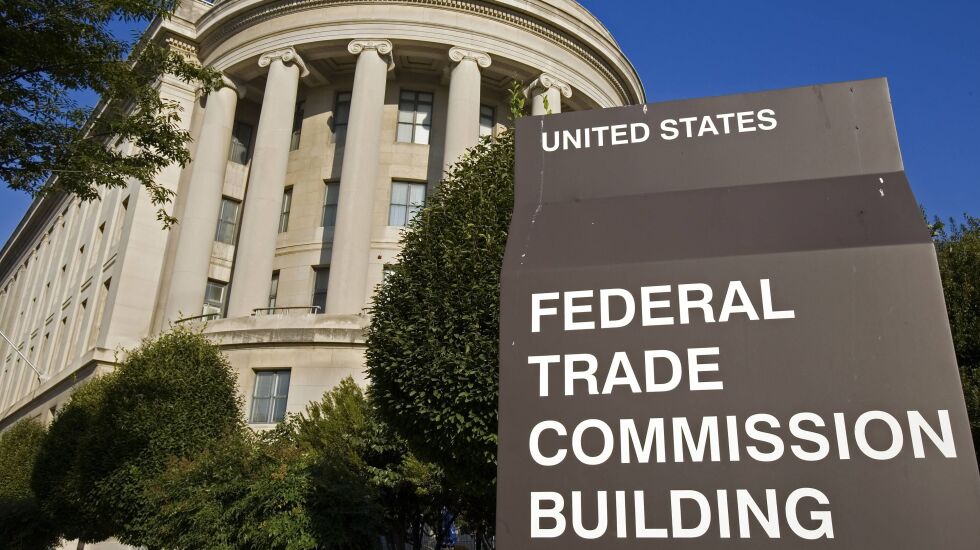
Tired of falling for fake reviews? The Federal Trade Commission is looking to make rules to fine people who write them and is asking the public to weigh in with comments on or before Sept. 29.
The FTC began exploring in November last year whether fake reviews, payment for positive reviews and suppressing negative reviews were worthy of a civil penalty. The hope is that the fines alone will deter people from making fake reviews, which in the long run will benefit consumers and marketers.
Samuel Levine, director of the FTC’s consumer protection bureau, said the rule “should help level the playing field for honest companies.”
“Our proposed rule on fake reviews shows that we’re using all available means to attack deceptive advertising in the digital age,” he said.
Last year, Fashion Nova settled to pay the FTC $4.2 million over allegations that it blocked negative reviews on their website. The FTC said the company suppressed reviews that rated products less than four out of five stars, used a third-party tool that automatically posted high reviews on the website, and required that anything less than a three-star rating required company approval.
This was the FTC’s first case involving a company’s efforts to conceal negative reviews.
And while there are multiple reports indicating the prevalence of fake reviews on sites like Yelp, TripAdvisor, Google and Walmart.com, there is a growing concern about the use of artificial intelligence to create reviews, according to the FTC.
And fake reviews cost consumers money. According to a paper presented last year to the National Bureau of Economic Research, researchers found that fake reviews lead consumers to buy lower-quality products, costing 12 cents for each dollar spent.
What’s in the new rule?
The FTC is seeking comment on the following proposed rules to fight fake reviews:
- Businesses won’t be able to write or sell reviews by someone who doesn’t exist, didn’t experience the product or service or misrepresented their experiences. Businesses also won’t be able to obtain reviews or disseminate testimonials if they knew or should have known that the reviews were fake or false.
- Repurposing a consumer review written for one product so that it appears to have been written for a substantially different product, also known as “review hijacking.”
- Businesses won’t be able to compensate or provide other incentives for writing a consumer review, whether it is positive or negative.
- A company’s own officers or managers cannot write a review or testimonial about the product or service without clearly disclosing their relationship. It also bars them from soliciting company reviews from company employees or their relatives, depending on whether the businesses knew or should have known of these relationships. Businesses also will be barred from disseminating testimonials by insiders without clear relationship disclosures.
- Businesses cannot create or control a website that claims to have independent opinions about a category of products or services that includes what the business is providing.
- Businesses cannot threaten, intimidate or falsely accuse someone to prevent or remove a negative consumer review. Businesses also cannot suppress negative reviews.
- No selling of false indicators of social media influence, such as fake followers or views. People would also be barred from buying such indicators.
How businesses responded to the proposed regulation
The FTC received 42 public comments for the November 2022 proposal from individual consumers, small businesses, review platforms, consumer advocacy groups and academic researchers. Of the received comments, 29 supported the proposed rulemaking, four said it was unnecessary, and the remaining didn’t address the question or express a clear view.
Though popular rating sites like Yelp and Google each have their own protocols to fight fake reviews, they favored the proposed regulation and submitted comments in January.
Google uses automation and human operators to remove fake reviews and believes the FTC’s proposed regulations can help complement their efforts, they said in a submitted comment. In June, the company announced it filed a lawsuit against Ethan QiQi Hu, founder of Rafadigital, alleging he posted more than 350 business profiles and tried to bolster them with more than 14,000 fake reviews.
Yelp supports civil penalties for people who write or pay for deceptive reviews, or who engage in other deceptive practices related to reviews. Yelp also uses technology and human moderation to fight fake reviews and notifies the FTC and other regulators about deceptive review conduct it has found on its site, said Aaron Schur, Yelp’s general counsel, in a statement to USA Today.
Fake Review Watch, which monitors online platforms for review fraud, commented that the “review platforms themselves bear the responsibility for the massive problem of fake reviews.” It recommended that platforms show whether a business had fake reviews removed, which pushes for more transparency for the consumer.
How to spot fake reviews
The Better Business Bureau offers consumers tips on how to spot whether a review is real or fake:
- Generic name − Fake reviewers use fake names like John Smith, or sometimes a series of letters and numbers to post reviews, and rarely use a profile picture.
- Verified purchases − Sites may add a badge to indicate whether a purchase is verified to indicate the reviewer bought the product on the same site they wrote the review. Nonverified purchase reviews are likely to be fake.
- Quality of product reviews − Does the reviewer explain why the purchased product was or wasn’t good? Keep an eye on whether the product has several five-star or one-star reviews and one or two words as a review, especially if there are multiple similar reviews posted in a short window of time. They are very likely fake.
- Scene-setting − Fake reviewers like to set a scene about someone else visiting a hotel for a vacation instead of reviewing the actual hotel.
Read more at USA Today.






